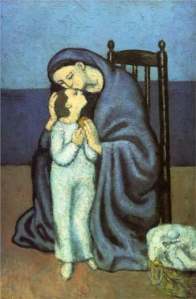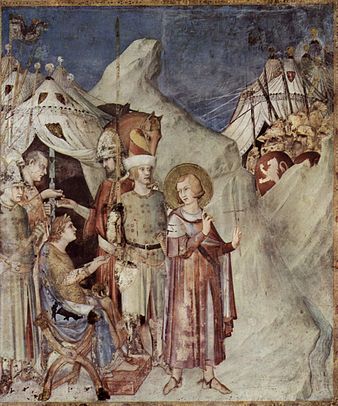A Meditation by Paul Nicholson
“When the chaos of life threatens to consume us, it will appear that God messed up or maybe that he doesn’t care. But what would it take for us to trust in God’s next step? What if all we have to do is show up and try? From “Water out of the Whirlwind” a sermon preached by The Reverend Amos Disassa, on 18 October 2015.
We have all experienced pain and disappointment in our lives. And, we have all experienced loss. Sudden, tragic, and penetrating loss can and does leave us bereft of faith and the will to live exerting a force which has the power to make us literally wish for death. But we forget that we were not there when God “laid the cornerstone of the earth” and we were not there in the newness of creation when everything was pristine and worked in perfect harmony and perfect balance. We were not there before the acts of human disobedience brought about corruption. When tragedy strikes we find ourselves so caught up in the present we fail to consider the past, or the future. It’s a strange thing about God. God made time and is yet not bound by it. He works his will through it as it pleases him to do so and as is best for us.
I offer this meditation on the subject of our suffering and God’s response to it. I am fortunate to have had the recent opportunity to receive the wisdom and insight of three very talented and gifted clerics with regard to this subject, magnificent preachers all, whose spiritual guidance has saved me, quite literally, from the depths of despair on more than one occasion. [1]
I.
A Priest’s Tale[2]
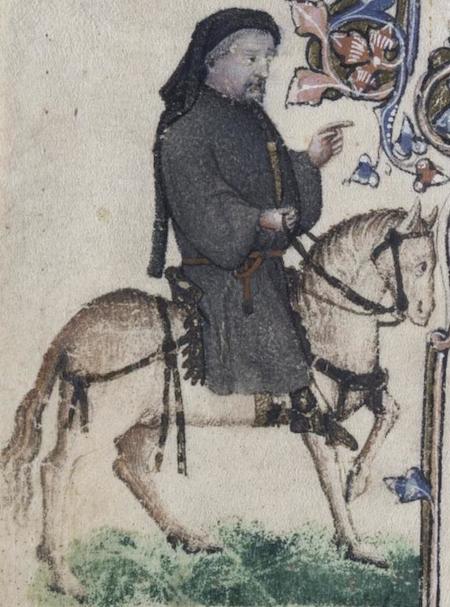

The true example that a priest should give
Is one of cleanness, how the sheep should live.
He did not set his benefice to hire
And, leave his sheep encumbered in the mire…
He sought no glory in his dealings,
No scrupulosity had spiced his feelings.
Christ and his Twelve Apostles and their lore
He taught, but followed it himself before.
Geoffrey Chaucer, Prologue to the Canterbury Tales
The Parson’s tale constituting a part of Chaucer’s Canterbury Tales is actually a sermon on how to prepare for the sacrament of reconciliation which was then referred to as the sacrament of confession. This tale is not about that. It is about an actual real life encounter which left its subject “renewed and rejuvenated “for the ministry to which she had been called.”
A young Episcopal priest, worn and wearied by the realities of parochial life, set out on a journey to New York City, to the Borough of Manhattan, in order to visit family and friends, and as an aside, receive physical and spiritual renewal and refreshment. She encountered her first obstacle when an unexpected automobile crash blocked traffic on the interstate highway making her arrival at the airport too late to catch her scheduled flight. Fortunately, the airline offered a second flight and the journey continued anon until the destination was achieved.
The timing of this journey just happened to coincide with the visit by Pope Francis to New York. The young priest had not actually considered the possibility of seeing the Pope during the visit but rather thought it “highly unlikely that this might occur.” The priest inner voice reflected that “if it is meant to be somehow, then something will work out.”
As she set out to meet her brother near the boundaries of Central Park there were noticeable barricades set up along the streets. Undeterred she continued down East 67th Street where she marveled at the diversity of the citizenry displayed. There were Upper East Side moms in their yoga pants and diamonds along with patrons of restaurants. And, it occurred to the young priest that these worldly New Yorkers who were accustomed to being assaulted on a daily basis by the sight of celebrities and famous people were not standing around excited to just see any famous person. And then it occurred to her, it must be the Pope.
Finding Fifth Avenue to be closed she noticed that it was unusually quiet like the calm before a storm with an air of anticipation. Voices filled the air instead of car horns and there was an excitement one could almost reach out and touch. Suddenly police motorcycles rounded the corner and not far behind in the midst of large black Suburbans a humble small fiat containing a large man dressed all in white appeared. As it passed her a white draped arm clothed in white reached out in blessing. Our young priest felt a jolt and involuntarily began to cry. She cried a cry of joy and a cry of acknowledgement of being in the presence of an apostle of the divine. She felt the divine presence and the peace of healing. Feeling she had been in the presence of holiness she felt she was rejuvenated for the ministry to which she had been called.
Later on her way to a favorite coffee shop she once again found her way blocked by traffic and again she found herself encountering Francis as he was departing the city. In her mind she mused that “she had run into the Pope two times and that rather than chasing him around Manhattan, or even registering for a free ticket to the Central Park parade, the Pope had found her in the mundane.” And, that “those thoughtlessly easy, small and faithful things are the places where the most grace and joy are to be found.”
Our young priest friend came to New York in need of guidance and healing. She did not seek a papal audience or a ticket to walk in a parade with the Pope but rather she simply “showed up” and tried to do what was right in visiting her friends and family. And in so doing she found God’s healing through his servant Francis. In the words of another clerical friend “she simply showed up and tried”. Can our response to suffering be that simple?
II.
Job and His Quest for Justice[3]
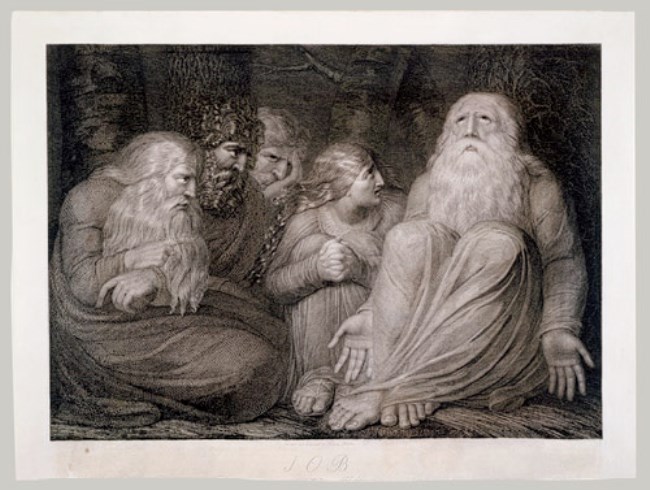 .
.
II.
In days long gone—a thousand years
Before A.D., at least –
There lived an Arab Chief named Job,
Famed scion of the East.
And in his day, ere pomp of kings
To that far land was known,
Proud Chieftains, in respective realms,
Held forth as from a throne.
‘Tis reckoned, too, when these Chief men
In times of stress would call
Their neighbour tribes, allied force,
That Job was Chief of all.
Charles B. Warren, A Paraphrase of Job’s Dark Days
Most Christian and Jewish folk are familiar with the story of Job. The book of Hebrew poetry, yes poetry, which bears his name, describes him thus and so:
‘ There was a man named Job; and that man was blameless and upright, one who feared God, and turned away from evil. There were born to him seven sons, and three daughters. He has seven thousand sheep, three thousand camels, five hundred yoke of oxen, five hundred she-asses, and very many servants; so that this man was the greatest of all the people of the east” Job 1:1-3
In the idiom of modern times Job was, as described by one cleric friend as, akin to a “benevolent billionaire”. A sort of Donald Trump and Pope Francis wrapped into one. And yet, for all his wealth and all his piety tragedy struck him and struck with a debilitating blow. To explain the why of this sudden tragedy the poet creates a diatribe between God and Satan in which God boasts that Job was so good, so pious, so faithful that there would be nothing Satan could do to “turn him” from his God. Satan readily accepts this challenge and points out that it is easy to love the Lord when all is good and certainly when it is as good as Job had it. Why should he turn from God since he had everything material that a king could desire?
So a bargain is struck. Satan is to be allowed to “have his way” with Job but with the proviso he was not to touch him physically. We all know the story. Job is about his business making sacrifices and attempting to absolve his partying children from sin when a series of messengers appear. The first announces the destruction of the oxen and the asses. It seems that the Sabeans fell upon them and took them and slew the servants who had been attending them. And, before the first messenger is finished the second arrives to announce that the Chaldean army had taken the camels and slew the sevants attending them. And before this messenger had finished a third arrives to announce that jobs sons and daughters had been killed while eating and drinking when a great wind came and blew the house down on top of them.
Even in his darkness moment Job refuses to “curse God” . He tears his clothes. and cries “…the Lord gave and the Lord has taken away; blessed be the name of the Lord.” Job’s faith and devotion shows true here. It is only later after long discussions with three friends that Job begins to question and his desire for what he perceives to be “justice” begins to arise. Why? Why did you do this to me, he cries out ? He decides that he must “try” God, put him to the test and make him explain himself. God has messed up, there must be some mistake and he made it. In the end Job gets his audience with God and receives his comeuppance as God turns the question into something a bit different. God rejoins job with a hearty rebuke;
‘Who is this that darkens counsel
by words without knowledge?
Where were you when I laid the
foundation of the earth?
Tell me if you have
understanding.
Who determined its measurements
–surely you know!
Or stretched the line upon it?
And, as God reveals himself directly to one of his creation, the thirst for justice and vindication fades and Job finds his satisfaction not in exacting justice or vindication but in receiving intimacy with the creator which makes vindication superfluous.
The poem ends by saying that the Lord restored the fortunes of Job and gave him twice as much as he had before.
In his struggle to rationalize and vindicate Job found that all he had to do was show up and try. God does the rest.
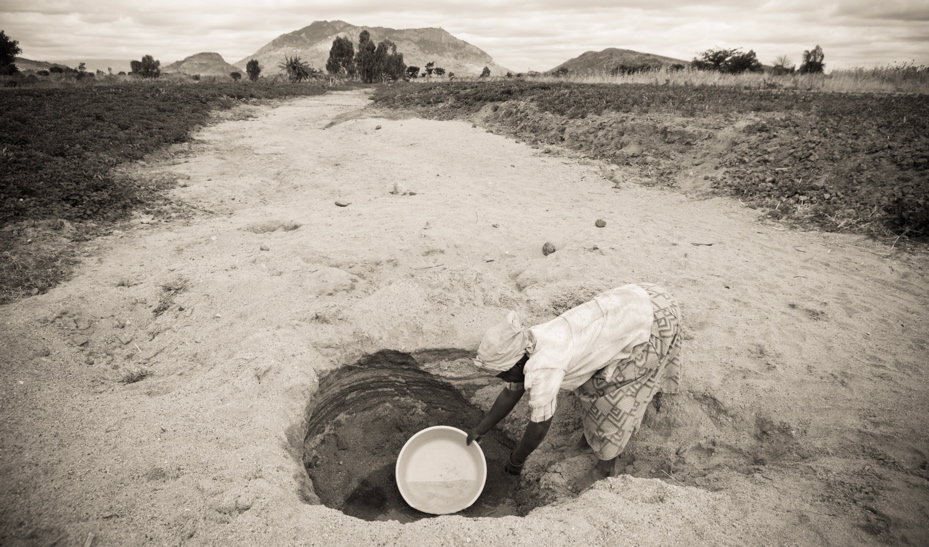
III.
The Water in the Well[4]
“And, rather than give up in frustration they decided to gather at the well each day, say a prayer and then lower and raise the bucket” A paraphrase from Water out of the Whirlwind, by The Reverend Amos Disassa.
In a small village in a remote place there were a group of people who needed water. They decided that in order to meet this need they would dig a well. They dug for days. Men, women and children all pitched in and gave their best efforts. They dug the well hundreds of feet into the ground knowing that if they just dug deep enough they would find water. But, in the end and after days of digging no water appeared. But, rather than give up in frustration they decided to gather at the well each morning and while gathered say a prayer then lower the bucket into the well and raise it in the hope that the water would be there. So they did just that they gathered each morning for years, said a prayer and lowered and raised the bucket but no water. Then one day when the rains failed to fall as expected they said a prayer, lowered the bucket then raised it and there was water.
One of the children asked her mother “Why did it take so many years and why did the water just appear? The mother responded: ” because we try. We kept showing up and asking for the water every day of our lives.”
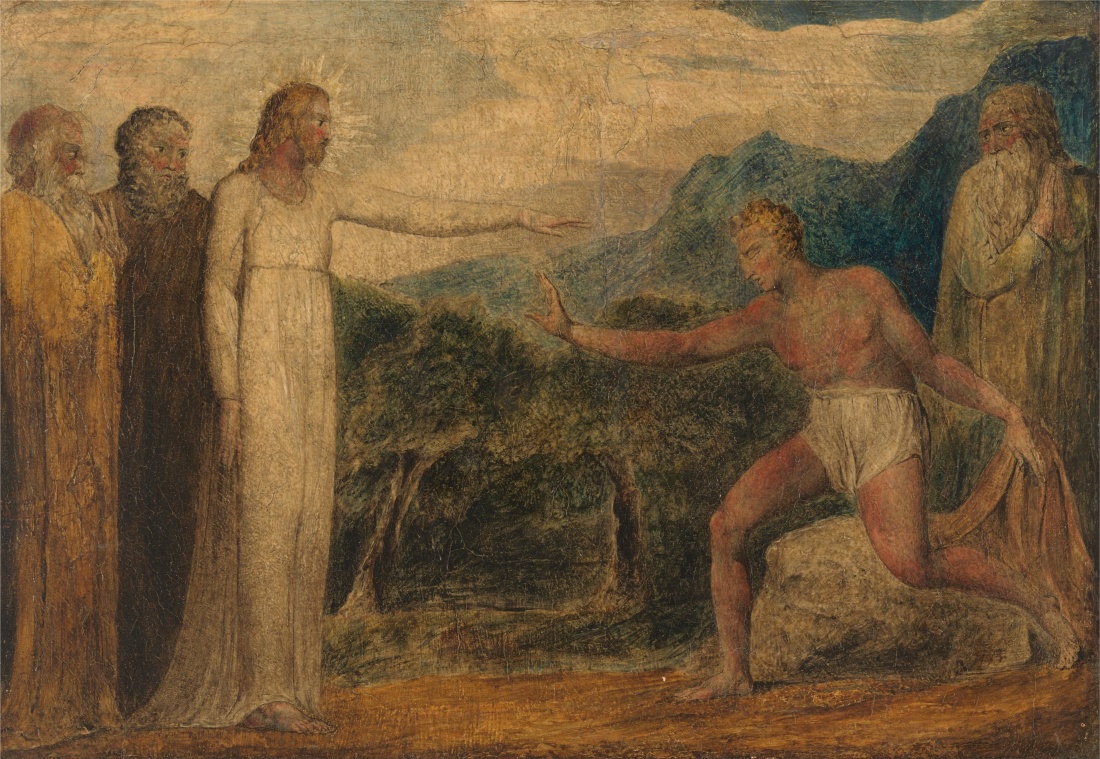
IV.
Bartimaeus Shows Up, Waits, and Receives His Sight
46“Then they came to Jericho. As Jesus and his disciples, together with a large crowd, were leaving the city, a blind man, Bartimaeus
(which means “son of Timaeus”), was sitting by the roadside begging. 47 When he heard that it was Jesus of Nazareth,
he began to shout, “Jesus, Son of David, have mercy on me!”
The Gospel According to Saint Mark, Chapter 10 vs. 46-52[i]
Bartimaeus was a blind beggar who had been blind from birth. His daily activities had been largely reduced to begging beside the roadside. Each day he came to a particular place on the road leading from the city of Jericho to the city of Jerusalem. He would spread out his cloak beside his spot so that pilgrims traveling between Jericho and Jerusalem would see it and deposit alms there. One day Bartimaeus followed his usual routine by arising early and claiming his spot by the roadside. As the crowd gathered there was talk. The talk was about one Jesus of Nazareth who was perceived as the Messiah a savior of Israel. Most of the crowd perceived him as a military ruler but many knew his real ministry consisted of salvation from sin. On this particular day as Jesus and his disciples neared the spot by the road occupied by Bartimaeus, Bartimaeus cried out “Son of David, have mercy on me!”. Many in the crowd rebuked Bartimaeus telling him to “be silent”. But Bartimaeus cried out all the more “Son of David, have mercy on me!” Having heard his cry Jesus stopped and commanded “Call him”. And, members of the crowd summoned Bartimaeus saying:” Take heart; rise, he is calling you.”
Bartimaeus threw off his outer garment, sprang up and came to Jesus. Jesus looked at him and in a tender voice asked “what is it that you wish for me to do for you?” And, Bartimaeus boldly proclaimed “Master, let me receive my sight” and, Jesus said to him, “Go your way your faith has made your well.” And Bartimaeus immediately received his sight, and followed Jesus along his way”
Can it really be that simple? Is our best response to world weariness, suffering or tragedy our effort to simply “show up every day and try?” Our priest, Job, the villagers, and Bartimaeus show us that we find God not through our own ability to control a situation but though our continuous good faith efforts to find him quietly, calmly and persistently. We ask in our time but God answers in his time and in the final analysis all we can do is “show up and try.” These stories teach us that we must have the faith to do so each and every day, no matter what.
[1] Many thanks to the Reverend Emily Hylden, the Reverend Amos Disassa, and Reverend Dane Boston for allowing me to share a bit of their insight and wisdom through this piece.
[2] Based on a post on “Hope of Things Not Seen,” a meditation by The Reverend Emily Hylden,
Art: Illustration of the Parson’s Tale, and Likeness of His Holiness Pope Francis created with coffee.
[3] Based on “Water out of the Whirlwind,” a sermon preached by the Reverend Amos Disassa.
ART: Job and His Tormentors by William Blake
[4] Also based on “Water out of the Whirlwind” by the Reverend Amos Disassa.
ART: Stock photo of African well.
[i] Based on “Son of David, have mercy on me!”, a sermon preached by the Reverend Dane Boston on 28 October m 2012 at Christ Church, Greenwich, Connecticut.
ART: Bartimaeus Receives His Sight by William Blake



